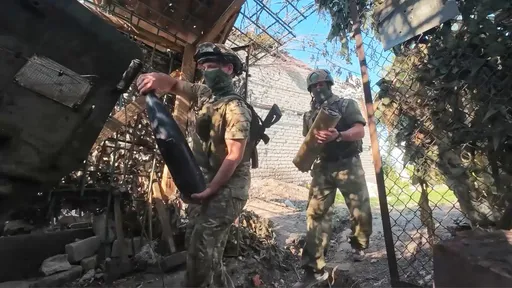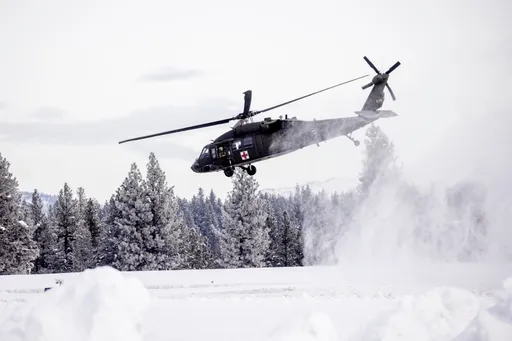The Jaish al Islam rebel faction in Syria's eastern Ghouta denied on Monday that its fighters were ready to lay down their arms and leave the Douma pocket, which they control.
Rebels in the town of Douma, near the capital, Damascus, have expressed willingness to stop fighting and leave, a Russian general staff official said earlier, according to Russia's RIA news agency.
"(This) is a lie and devoid of truth," said Mohammad Alloush, the faction's political chief.
Douma is the only town on the eastern outskirts of the Syrian capital still held by rebels, after regime forces captured all other opposition areas they had besieged for years.
The town is also home to tens of thousands of people, including many who were displaced over the past weeks of fighting as regime forces pushed deeper into eastern Ghouta.
Lt Gen Stanislav Gadzhimagomedov told Russian news agencies on Monday in Syria that Russia's military was in talks with the rebel group for them to leave Douma.
Gadzhimagomedov, who is the deputy head of the Chief Operational Department at the Russian General Staff, said he expects the Russian military to "take them out soon" and that the rebels have reportedly indicated their willingness to lay down their arms.
However, the Britain-based Syrian Observatory for Human Rights said there were divisions among the group regarding negotiations over Douma, with some hardliners refusing any talks with Russians and those would likely be taken to the central Qalamoun region.
The Observatory said some fighters asked to be allowed to go to the southern province of Daraa but that the Russians rejected this request.
TRT World's Melinda Nucifora is in Afrin in Syria with the latest.
Syria's pro-regime Al Watan daily said the rebels and the Russians have reached an "understanding," adding that each side would study a draft agreement within the next three days and if they agreed on it, the agreement would be signed.
Al Watan quoted Syrian legislator Mohammed Kheir Seiryoul, who is originally from Douma, as saying that the understanding could lead to an agreement to dissolve Jaish al Islam. During this period, its members would hand over their heavy weapons and the Syrian regime would assume control of state institutions in the town.
A civilian committee representing Douma said in a statement released late on Sunday after meeting Russian officials that the negotiations "are extremely difficult and no quick results should be expected."
Talks with the Russians would resume within three days, it said.
Douma-based opposition activist Haitham Bakkar said the town was subjected to some artillery shelling early on Monday that wounded several people.
The negotiations on Douma came after thousands of rebel fighters and their families left three other eastern Ghouta pockets in the past weeks, after years of siege and weeks of heavy bombardment by the Syrian regime and Russia's air force.
The regime-controlled Syrian Central Military Media said 18 buses carrying 1,100 people, including 238 opposition fighters from different rebel factions, were getting ready Monday to leave the towns of Jobar, Zamalka and Arbeen toward Idlib.
The Russian Defense Ministry's Center for Reconciliation in Syria said in a statement that more than 400 people left Douma early Monday. It put the total figure of civilians and rebels evacuated from the area since the Russia-sponsored "humanitarian pauses" were announced at 114,000 people.
Jaish al Islam spokesman Hamza Bayraqdar blasted their former allies in Ghouta of Faylaq al Rahman group, accusing them of helping regime forces in capturing more than 80 percent of the once rebel-held districts after they dried out artificial swamps set up by insurgents to slow down the regime's offensive.
"We had defensive plans prepared, but regrettably Faylaq al Rahman cut the water that was brought from Barada River," Bayraqdar told the Dubai-based Al Arabiya TV. "This sped up the regime's advance."























